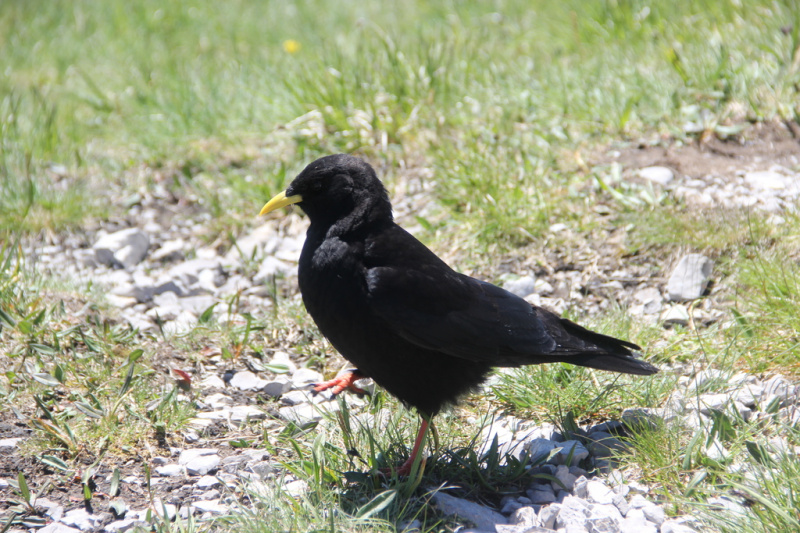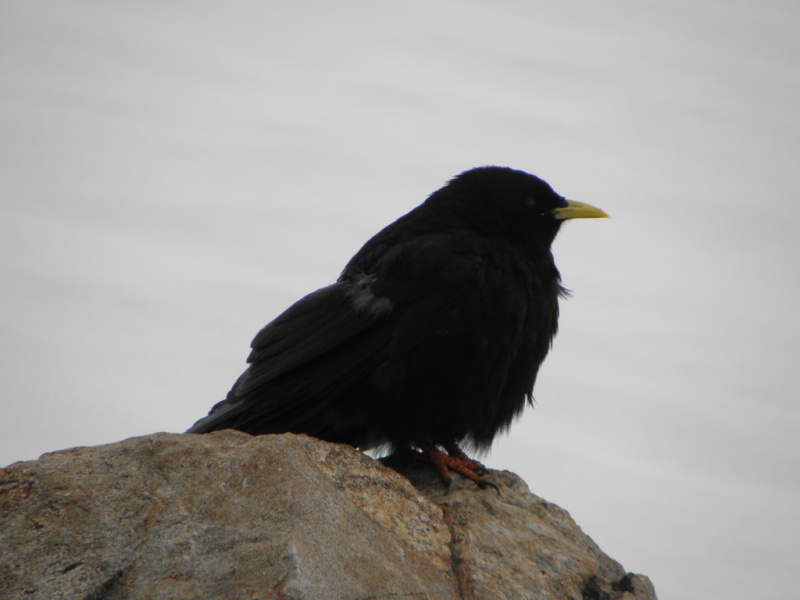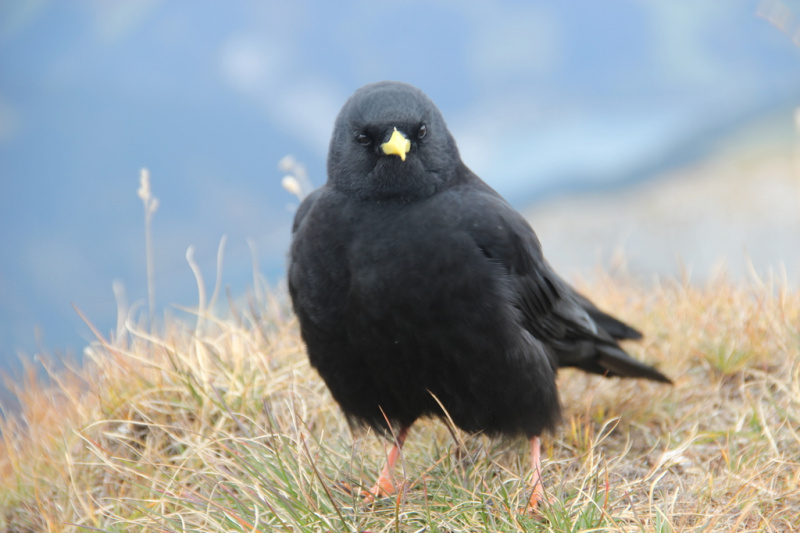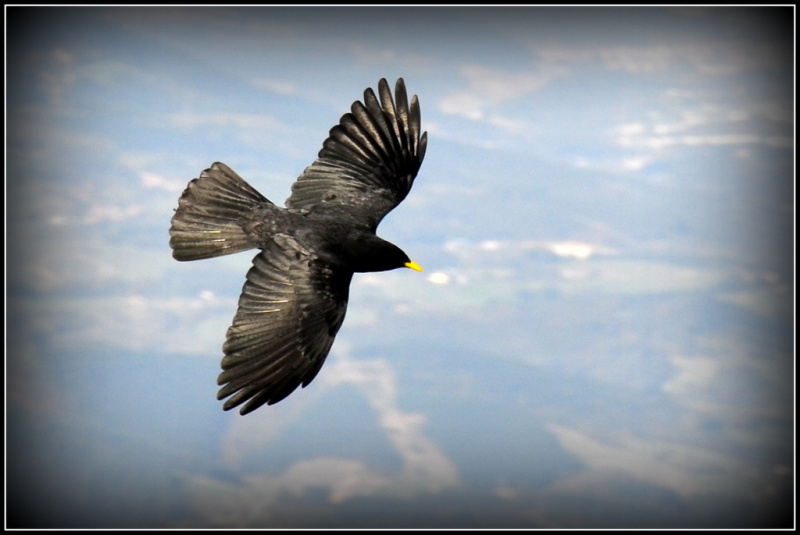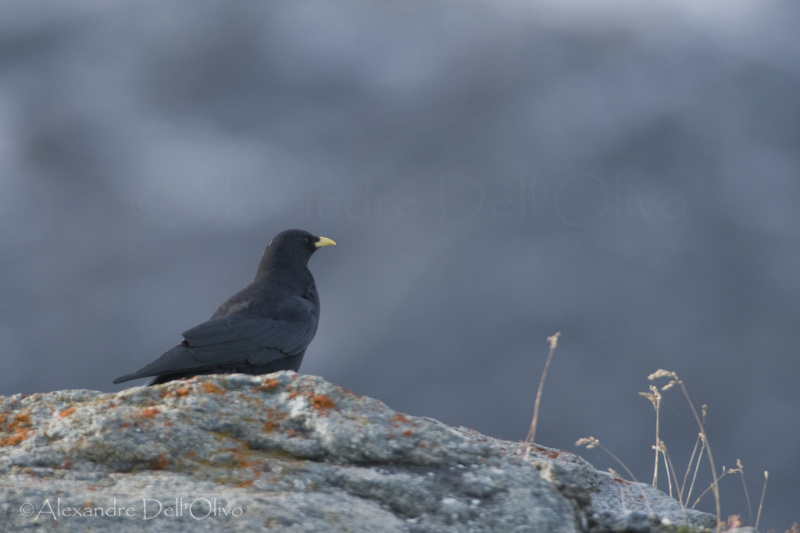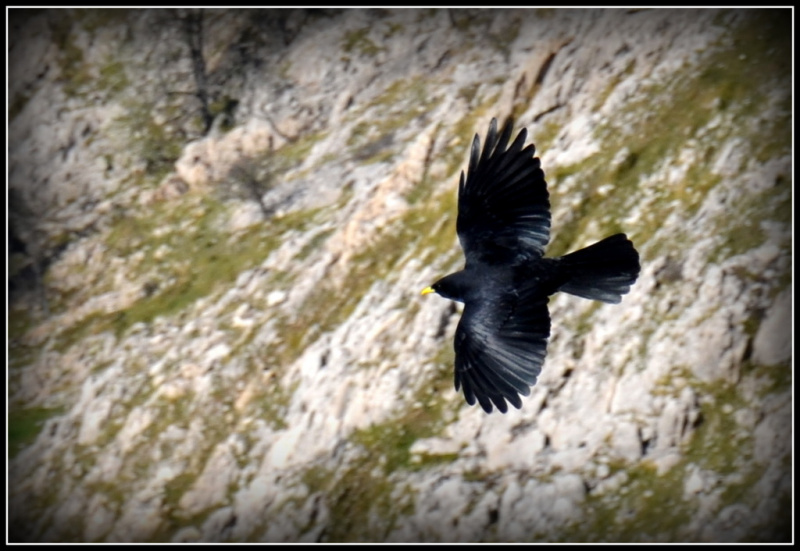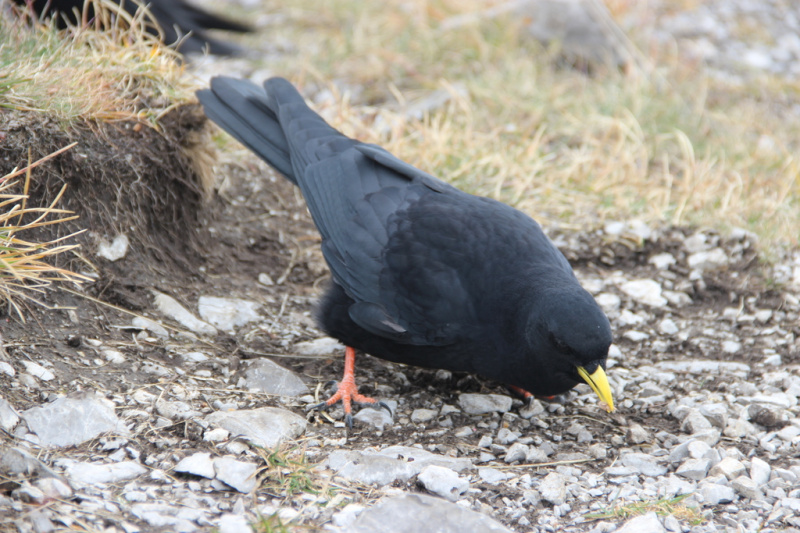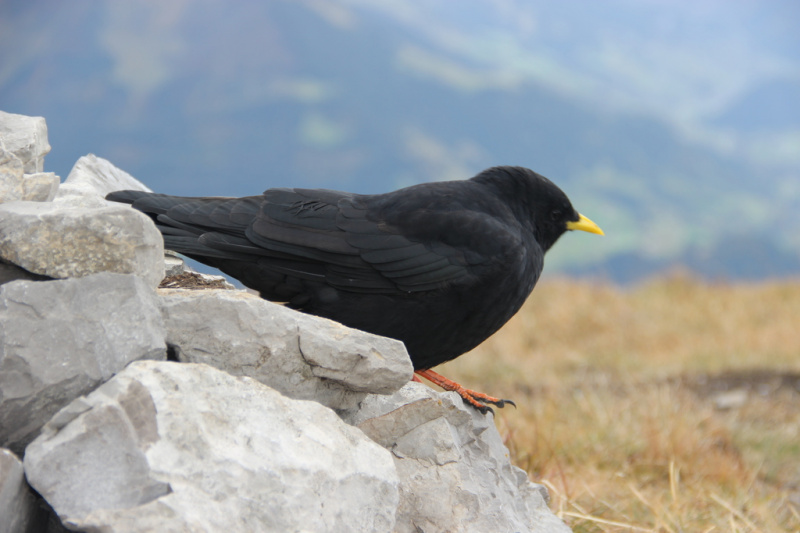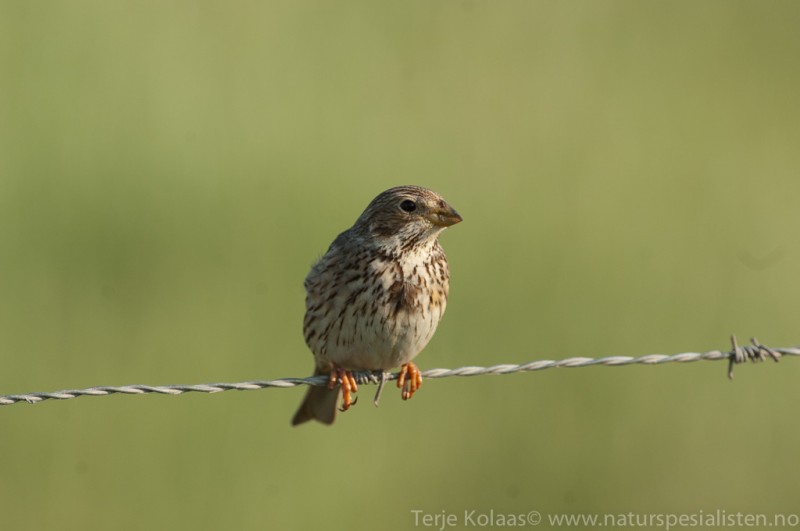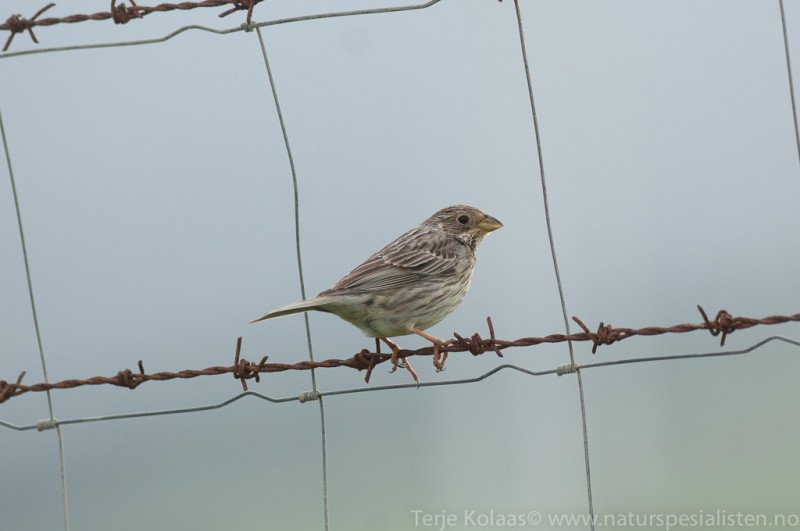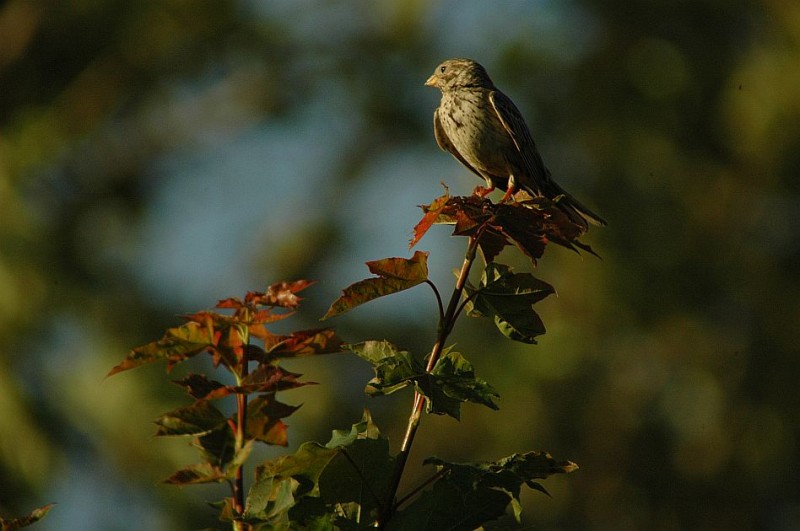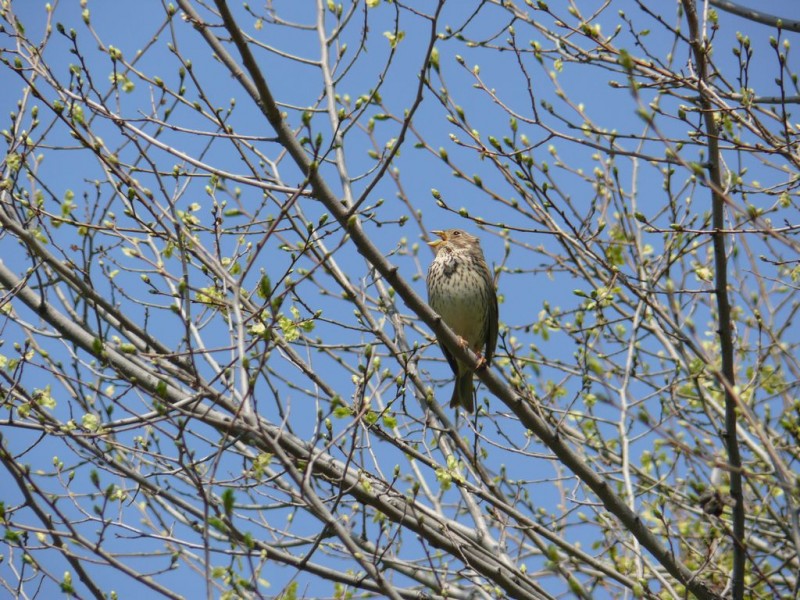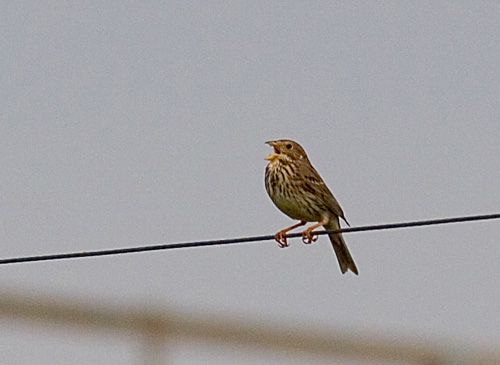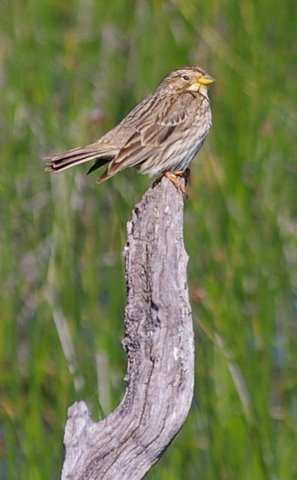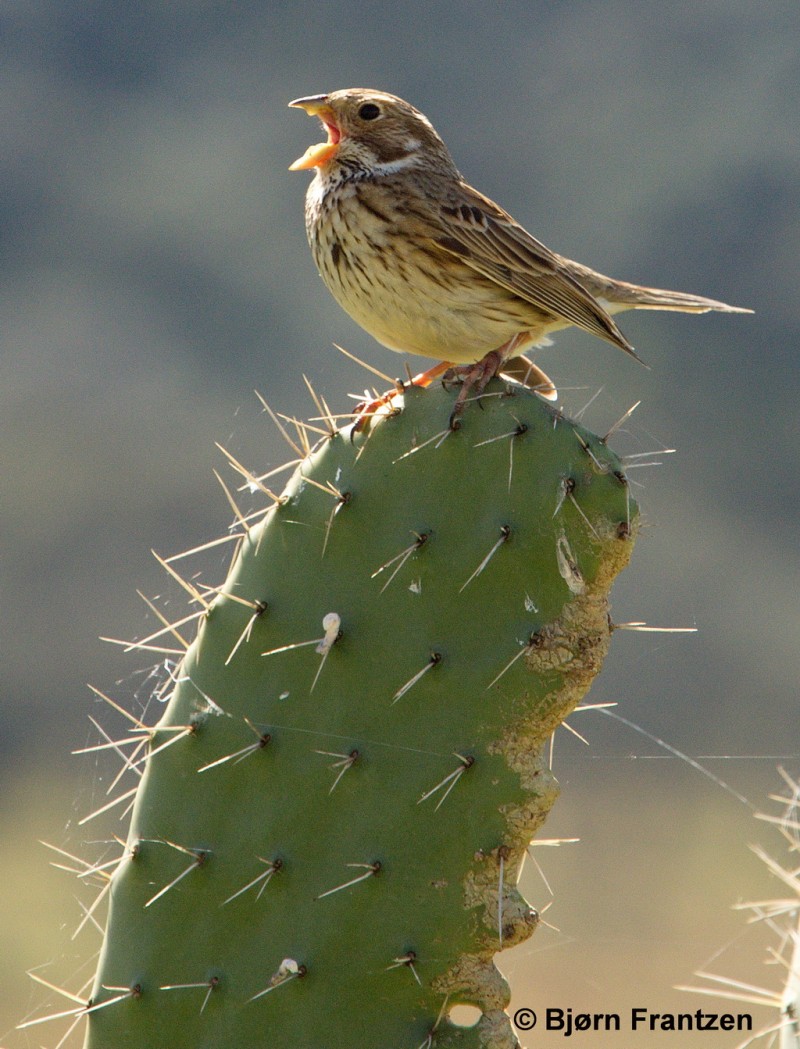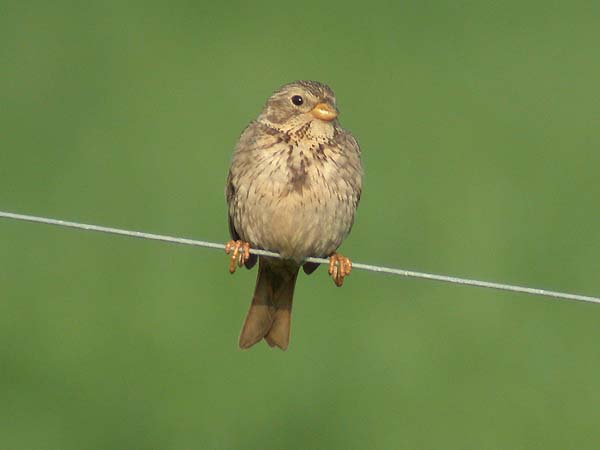Alpine Chough (Pyrrhocorax graculus)
Corn Bunting (Emberiza calandra)
All black plumage, red legs and relatively short and straight, yellow bill. Note that immature Red-billed Chough has yellowish-brown bill, but never as pure yellow as in Alpine Chough, and the whole bill is curved. Easily confused with Red-billed Chough at a distance where both species occur, but note more narrow, less fingered wings, and longer, more rounded tail. Resembles Jackdaw in size, but flying Alpine Choughs differs by two-toned underparts of wings (darker coverts). Flight acrobatic, but a little more stilted than Red-billed Chough.
Sound:Diagnostic and very different from Red-billed Chough. A sharp, quite high-pitched, whistling trill "chreeeee". Usually alternated with pure-toned high-pitched whistles, falling abruptly in pitch with a "clipping" ending.
Contact call:
Distribution:
Wikipedia: map (se also Xeno-canto below)
Ecology:Birdlife ecology
Links:
Observation.org Latest observations
Image search Flickr NB! May give other species
CCA featureless, bulky bunting. Larger than Yellowhammer, but with a shorter tail. Combination of size, build, flight-pattern and sound important for identification. Recalls the bigger larks in build. Takes off with a loose and surging flight, often with legs dangling underneath. Undulations particularly strong just before landing. Wings dark, and tail without white feathers or markings. "Tooth" in upper mandible visible at close range when singing. Bill and legs yellowish pink. Often shows an indistinct, dark breast patch.
Sound:Song diagnostic. A brittle, jingling and accelerating phrase of about 2 seconds duration. Repeated in a monotonous manner, to form a typical soundscape of fields where it is numerous. Often compared to the sound of a chain of small keys. The phrase starts with a few staccato, ticking sounds that progress into a dry trill, followed by a short ritardando. Calls with a dry "chep" or a brittle "vitt".
Song:
Distribution:
Wikipedia: map (se also Xeno-canto below)
Ecology:Birdlife ecology
Links:
Observation.org Latest observations
Image search Flickr NB! May give other species
CC
 English
English Albanian
Albanian
 Armenian
Armenian
 Bulgarian
Bulgarian
 Catalan
Catalan
 Croatian
Croatian
 Czech
Czech
 Danish
Danish
 Dutch
Dutch
 Finnish
Finnish
 French
French
 Georgian
Georgian
 German
German
 Greek
Greek
 Hungarian
Hungarian
 Italian
Italian
 Latvian
Latvian
 Lithuanian
Lithuanian
 Macedonian
Macedonian
 Norwegian
Norwegian
 Polish
Polish
 Portuguese
Portuguese
 Romanian
Romanian
 Russian
Russian
 Sami : Lule sami
Sami : Lule sami
 Sami : North sami
Sami : North sami
 Sami : South sami
Sami : South sami
 Scientific names
Scientific names
 Serbian
Serbian
 Spanish
Spanish
 Swedish
Swedish
 Ukrainian
Ukrainian


